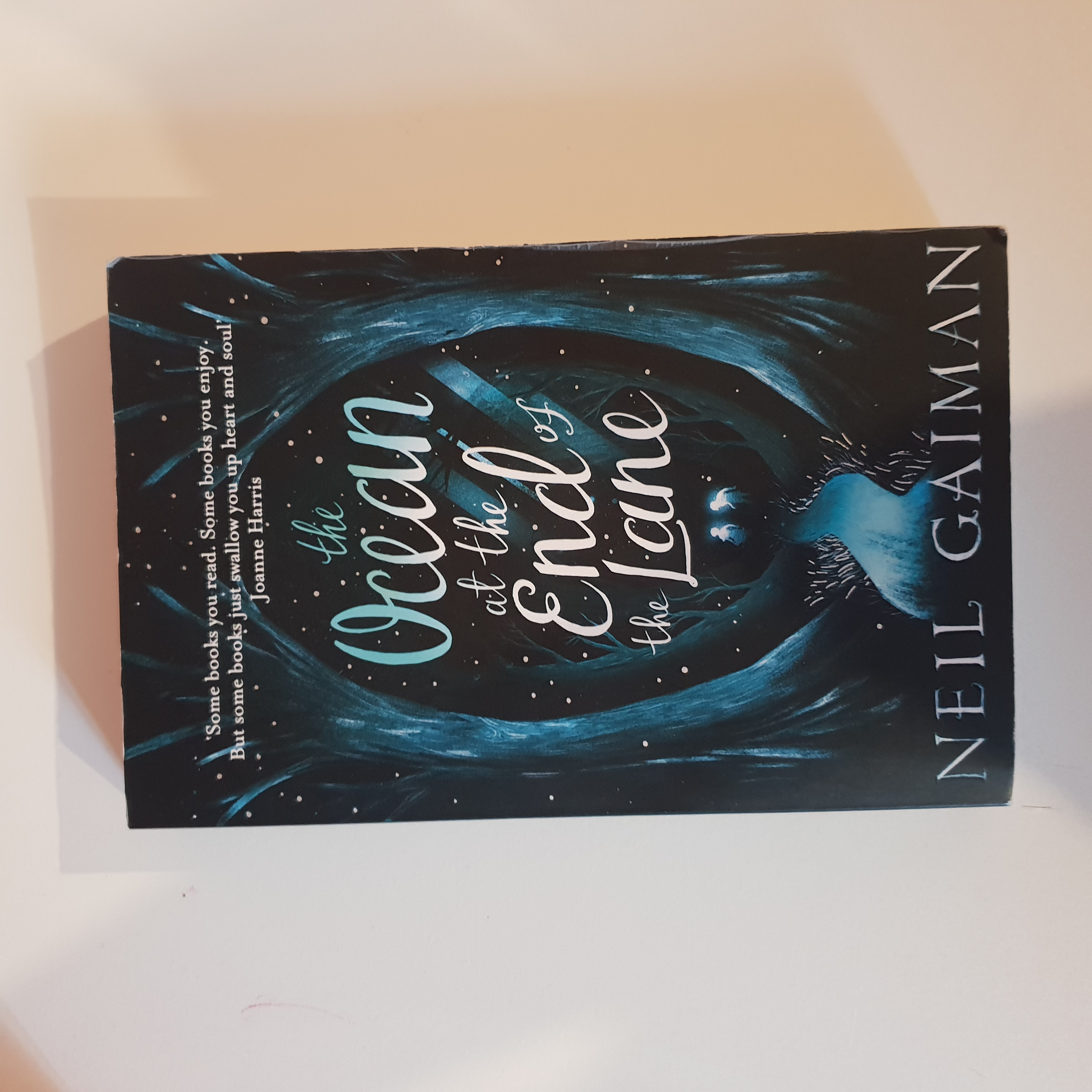Review: The Ocean At The End Of The Lane
Rating: 4 Stars
In The Ocean At The End Of The Lane, Neil Gaiman shows us the world as seen by a 7-year-old boy. The world that children live in is not the same as our adult world. Their realities are different from our realities, and it is a fact that as they grow older, they forget the perspective their childhood gave to their world.
An older man comes back to his hometown to attend a funeral and decides to take a walk down memory lane. Something seems to pull him towards the home where he lived for seven years, from age 5 till age 12. He knows that the house had been demolished a long time back, and that he has no fond memories with that place.
As he passes the house, he realizes that his destination is actually the farmhouse at the end of the lane, where he had become friends with a girl when he was 7 years old. Lettie Hempstock was 11, and the two had become best friends immediately. When he reaches the house he starts remembering things that he has forgotten a long time ago. He is met by Lettie’s mother (or grandmother, he’s not sure) who tells him that she remember him. He asks if he can sit by their pond and reminisce about the past.
As soon as he sits down by the pond, he remembers that Lettie used to call the pond an ocean, and this recollection opens the floodgates of memory long forgotten. Here begins the story of how a 7-year-old boy was saved by an 11-year-old girl, in more ways than one.
Gaiman’s stories are always fairy tales, with elements of magic and surreal settings, but at the same time everything can also be a metaphor for something real. This book is no different. Told from a child’s perspective, The Ocean At The End Of The Lane is mostly about magic and other-worldly creatures. But it is also about how children are always aware of what is going on around them, even if adults choose to think otherwise.
A child’s mind can imagine great things, and at the same time it is capable of accepting truths that adults might dismiss as being fanciful or imaginary. This book leaves the differentiation of real from imaginary on the reader, and takes you on a ride into the mind of a child as remembered by an old man. In the end, memory is fleeting and what we once thought was unforgettable becomes a figment of our imagination as we age.
Once again, I find myself lost in Neil Gaiman’s brilliant imagery, and cannot help but think of him as one of the best writers of our time.

